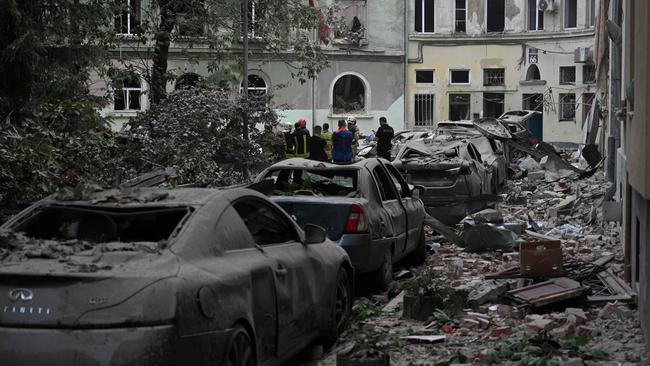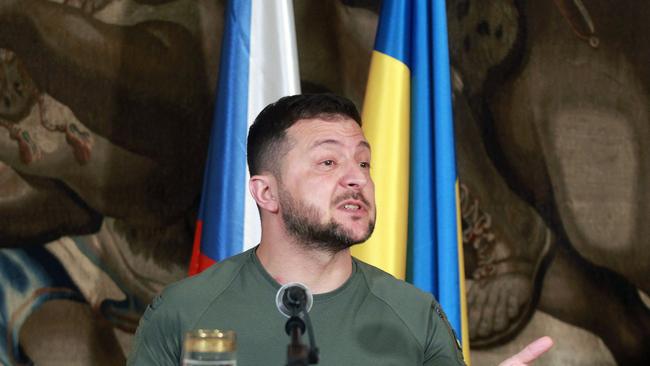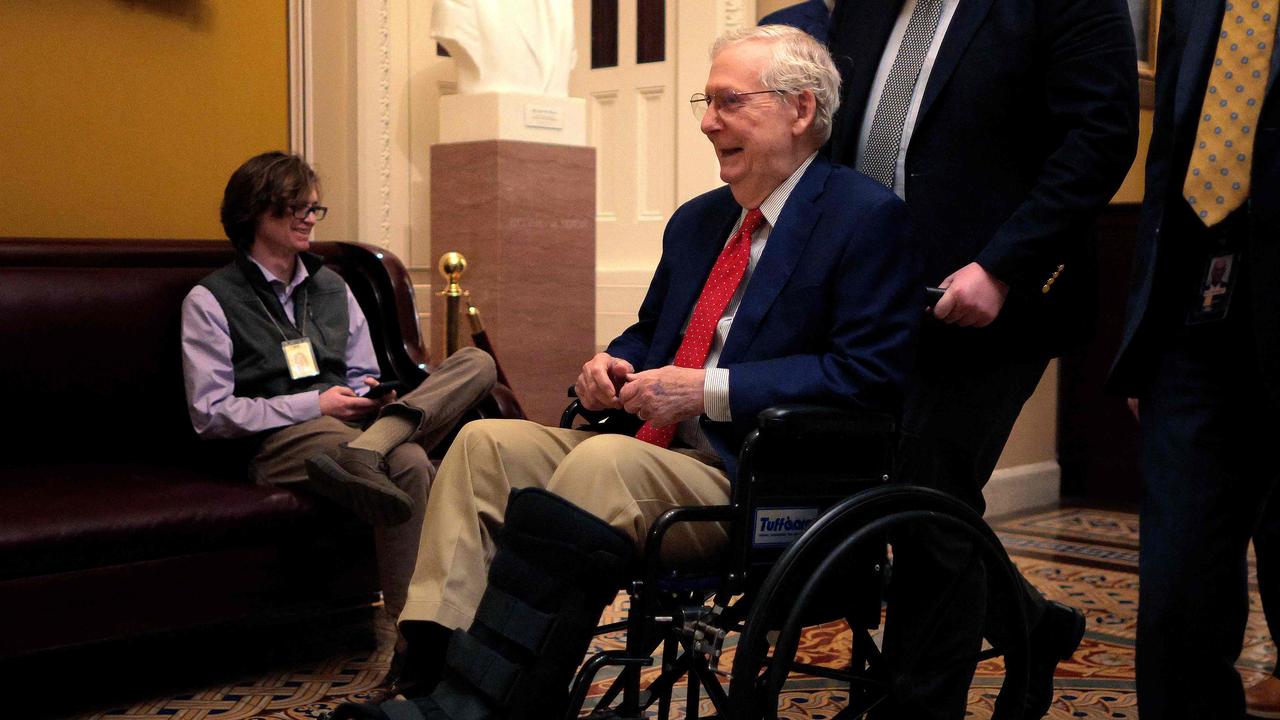US to send cluster munitions to bolster Ukraine offensive
Biden administration aims to strengthen Kyiv’s hand despite concerns over risk to civilians.

The Biden administration plans to send cluster munitions, which strew small bomblets over a wide area, to Ukraine to strengthen its hand in a high-stakes offensive against Russian forces.
The White House has agreed to grant a waiver under the US arms export laws to send the weapons, formally known as dual-purpose improved conventional munition.
The administration is expected to announce the decision on Friday (Saturday AEST) as part of a broader package of military assistance, senior US officials said.
Ukraine has long appealed for the weapons, and the Pentagon has said they could be effective when employed against Russian troop and armoured formations and trench lines. The munitions “would be useful, especially against dug-in Russian positions on the battlefield,” Laura Cooper, a senior Defence Department official, told congress last month.
Human rights groups say unexploded submunitions could maim or kill civilians long after a conflict ends, which initially made the White House’s National Security Council reluctant to approve the transfer. But the possibility the cluster munitions could help Ukraine’s efforts at a critical stage in the conflict has swayed opinion within the administration and among some politicians on Capitol Hill.
Proponents of the decision also say that the provision of cluster munitions would reduce Ukraine’s dependence on 155mm artillery shells, of which the US has a limited supply.
More than 110 countries, including Australia, have signed an international Convention on Cluster Munitions that prohibits all use, transfer, production and stockpiling of cluster bombs.

But the list of signatories contains notable absences. The US, Ukraine, Russia, China, India, Pakistan and South Korea haven’t signed the convention. Neither has Estonia, Finland, Latvia, Poland, Romania, Turkey nor most countries in the Middle East.
Pentagon spokesman Brigadier Genera Pat Ryder, who didn’t confirm the decision, said that the Pentagon has several variants of the munitions. To mitigate the risk to civilians, the munitions that the US has considered providing have a low dud rate, he said. Older cluster munitions with dud rates higher than 2.35 per cent wouldn’t be provided, General Ryder said.
Adam Smith, the ranking Democrat on the House of Representatives armed services committee, said in May that the provision of cluster munitions should be considered, particularly since the Russians were already using them. “Our cluster munitions have a much lower dud rate than the Russian cluster munitions,” Mr Smith told a meeting of the Council on Foreign Relations in May. “I’m not in favour of spreading cluster munitions around the world, but in this particular case the Russians are already doing that in Ukraine.”
According to the Human Rights Watch’s global Cluster Munition Monitor 2022 report, cluster munitions fired by Russian forces have caused at least 689 civilian casualties in Ukraine. Russian forces have attacked 10 Ukrainian regions with hundreds of cluster munitions, while Ukrainian forces have used cluster munitions rockets on at least two occasions, the group said.
While the provision of cluster munitions could give a boost to Kyiv, they are not a panacea since Ukrainian forces have also been slowed by Russian minefields.
The US military currently reserves the right to use cluster munitions against American adversaries, including in a conflict with North Korea.
In 2008, the Pentagon said that US forces would use cluster munitions after 2018 only if their dud rate was less than 1 per cent. But the Trump administration amended that policy in 2017, saying that cluster munitions could be effective against enemy forces operating across a broad area. News of the decision came as Ukrainian President Volodymyr Zelensky admitted in Prague on Thursday that Ukraine’s counteroffensive was “not fast” but said Kyiv’s troops were advancing. Mr Zelensky arrived in Prague as part of a diplomatic push for Ukraine to join NATO and woo allies for more weapons for its mounting pushback against Russia.
“The offensive is not fast, that’s a fact. But nevertheless, we are advancing, not retreating, like Russians,” Mr Zelensky said alongside Czech leader Petr Pavel. “We now have the initiative.”
Mr Zelensky travelled to Prague after visiting Bulgaria, a supporter and ammunition producer, to discuss NATO membership and more armaments. On Friday he is scheduled to hold talks in Istanbul with Turkish leader Recep Tayyip Erdogan, an important broker in the conflict.
The Wall Street Journal


